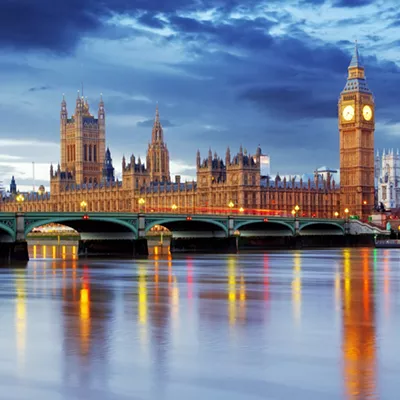Here's what we've found out recently, thanks to The Guardian, The Washington Post, and NSA leaker Edward Snowden: The National Security Administration (NSA) has set up an electronic dragnet that sweeps up information on nearly all Americans. They do it by scooping up the content and data from every phone call made in the U.S., and gaining access to Americans' Internet activities via the servers of companies like Apple, Microsoft, Google and others. Those companies deny giving the NSA direct access, so for now, the full extent of the NSA's Internet snooping is still uncertain, but it sure doesn't look good.
These revelations raise obviously critical issues, such as government spying and corporate collusion; citizens' privacy rights; national security; Congress's feeble supervision of the NSA; and on and on. Too bad, then, that America's current political and media cultures seem unable to engage in serious, needed discussions. What we get these days, as we saw last week, is a circus parade of absurdity.
The NSA's surveillance quickly split both the Democrats and Republicans. Civil libertarians from both parties condemned the intelligence agency's data mining, making political bedfellows of Sen. Rand Paul and the ACLU, both of which want to sue the NSA. Meanwhile, Sens. Dianne Feinstein and John Kerry, both liberals, hopped in bed with conservatives Sen. Saxby Chambliss and House Speaker John "Orange Alert" Boehner, defending the NSA and condemning leaker Snowden. Of course, some members of Congress hailed the NSA's defense of national security until polls showed that most Americans oppose the government trampling their privacy, at which point the lawmakers smoothly turned on a dime and began expressing "concern" to the likes of NSA Director Gen. Keith Alexander. The general, who appeared before the Senate Appropriations Committee, contributed his own absurdity, proclaiming that NSA data analysts are whole-heartedly concerned about protecting civil liberties and privacy. So far, however, the only evidence we've seen of such concern within the NSA came from Snowden, the supposed "traitor."
Some pols and pundits were gung-ho, telling Americans, in effect, "Suck it up. We're at war, and that means we have to be willing to give up some of our privacy." Granted, the government needs information about terrorist plans – that's a given. But let's not forget that, according to multiple studies, Americans are as likely to be struck by lightning as to die in a terrorist attack. Remember too that Islamic terrorism doesn't represent a mortal threat to the continued existence of the U.S., like, say, Nazism or Japanese fascism in World War II. Simply put, terrorism is not enough of a threat to justify violating the privacy rights of 300 million Americans.
Since we're on the subject of absurdity, we can't ignore FoxNews' leading know-nothing, Sean Hannity. He enthusiastically and repeatedly supported NSA surveillance and data mining in 2006 when Bush was president. Last week, however, with Obama in the White House, Hannity was suddenly Mr. Right To Privacy, attacking the president and warning of "tyranny" in America as a result of the NSA programs. The circus parade marches on.
Hannity's farcical flip-flop brings up the biggest absurdity of the whole NSA debate: We already knew about this stuff. NSA's massive surveillance operations, including data mining of U.S. citizens' information, were a major issue just seven years ago. Progressives and some libertarians raised a huge stink, accusing the Bush administration of trampling citizens' rights. It's absurd that some of the same people who tore into Obama last week, Hannity-style, were full-throated supporters of the same thing (minus the Internet data) when Bush did it. And people who blasted Bush but now defend Obama's identical policies are just as absurd. What's really absurd — tragically so — is that our politics are now so disjointed and ADD-ish that hardly anyone remembers the 2006 brouhaha over NSA overreach. How a country with the attention span of a gnat is expected to deal seriously with such issues is anyone's guess. The absurdities just keep piling up, and meanwhile, the NSA keeps on snooping on all of us. God bless the Land of the Free.
Two more things. First, if you are serious about not wanting your emails and such swept up in the NSA's dragnet, the ProPublica news website has a long story about how to encrypt your messages and foil Big Brother. You can read it here: http://www.propublica.org/article/worried-about-the-mass-surveillance-how-to-practice-safer-communication
Second, this column is being written on the 42nd anniversary of the publication of the Pentagon Papers, a classified study of details of American involvement in Vietnam, leaked by Pentagon analyst Daniel Ellsberg. The uproar then was even more intense than today's, and the same arguments about needed secrecy vs. public's right to know made the rounds, along with the same warnings of apocalypse if leaks didn't stop. Looking around, I notice that we seem to have survived.
Speaking of...
Latest in Boomer with Attitude
More by John Grooms
Calendar
-

Free Wine Tasting at Roots Cafe @ ROOTS Cafe
-

Armored Car Brewing Food Truck Friday @ Armored Cow Brewing
-

Trap & Paint (Hookah Edition) @ Blush CLT
-

Labor Day All White Extravaganza @ Blush CLT
-

University Farmers Market @ The Shoppes at University Place


















